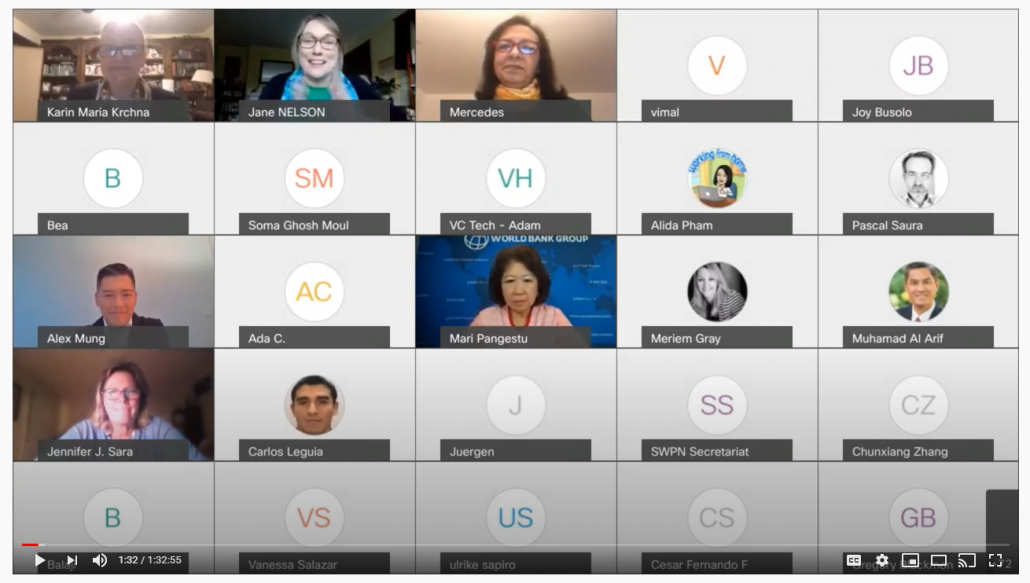“Restarting Economies, Building Resilience”: 2030 WRG Affiliate Session at World Economic Forum Sustainable Development Impact Summit 2020
2030 WRG participated in the Forum’s Sustainable Development Impact Summit with an affiliate session that, in light of COVID-19, stressed the need to raise water as a top priority of stakeholders and further busting of silos. The session gathered over 150 people and shared how MSPs mobilize action and lead to results with country examples focused around reforms generated through MSPs in transforming value chains and building resilience.
Please see the link to the recording
See also attached Mr Sandigawad’s remarks (translated into English). He spoke in Hindi during the event. Apologies the closed captioning did not work for everyone.
Speakers included (in order of appearance)
- Mari Pangestu, Managing Director Development Policy and Partnerships, World Bank
- Tony Milikin, Chief Sustainability, Procurement, and Circular Ventures Officer, AB InBev
- Vimal Shah, Chairman, Bidco Africa, Kenya
- Mercedes Castro, CEO, Agualimpia, Peru
- Andrew Tuimur, Chief Administrative Secretary, Ministry of Water, Sanitation, and Irrigation, Kenya
- KV Raju, Chief Economic Advisor, Government of Uttar Pradesh State, India
- Ajay Bathija, Managing Director, Coca Cola Bangladesh
- Anil Jain, Vice Chairman and Managing Director, Jain Irrigation, India
- Ningappa Sandigawad, Progressive Farmer, Ramthal, India
- Juergen Voegele, Vice President for Sustainable Development, World Bank
- Paul Bulcke, Chairman of the Board, Nestlé
The discussions focused on three key areas of joint action:
- making a strong, evidence-based case for water as a public health priority; for water as an environmental priority; and for water as an economic growth priority – and the need to break down the silos between these;
- the crucial importance of country ownership and locally-led, multi-stakeholder partnerships to drive policy and implementation on the ground that is inclusive, transparent and scalable;
- the importance of transforming value chains across different industry sectors, from agriculture to mining and manufacturing.
Sessions conclusions and next steps include:
- Delving deeper and leveraging WBG investments for greater impact in the countries of 2030 WRG Multi-Stakeholder Platforms
- Expanding 2030 WRG presence from national and state levels to the city level as well as gradually to new countries
- Innovating faster and shaping the global agenda on value chain transformation, circular economy promotion and resilience, for systemic impact.
2030 WRG has already developed collective action models across 14 countries and states. Now, as part of the World Bank’s Water Global Practice, the program needs to scale, replicate, and expand its impact in the 10-year stretch to reach the 2030 SDGs.
We look forward to continuing the conversation with many of you and if you would like reach out to us about deeper involvement in 2030 WRG, please do get in touch.

